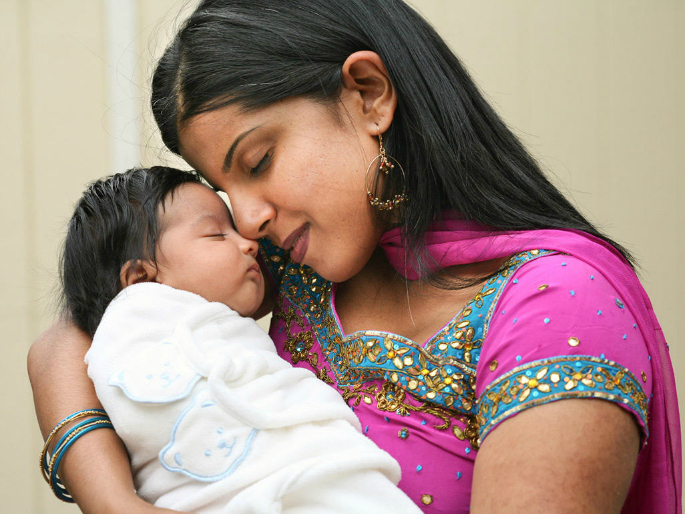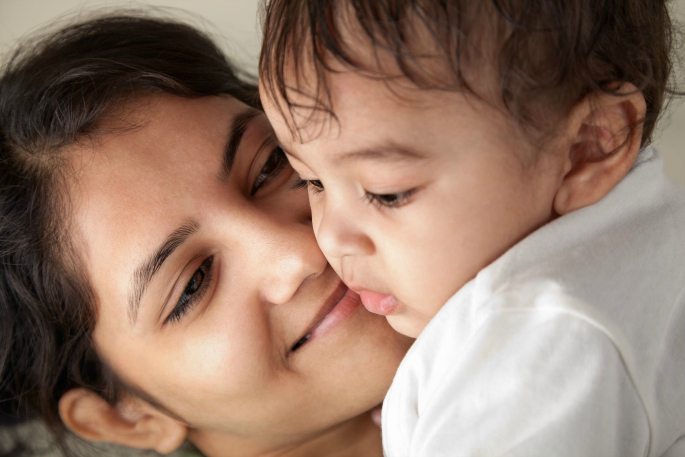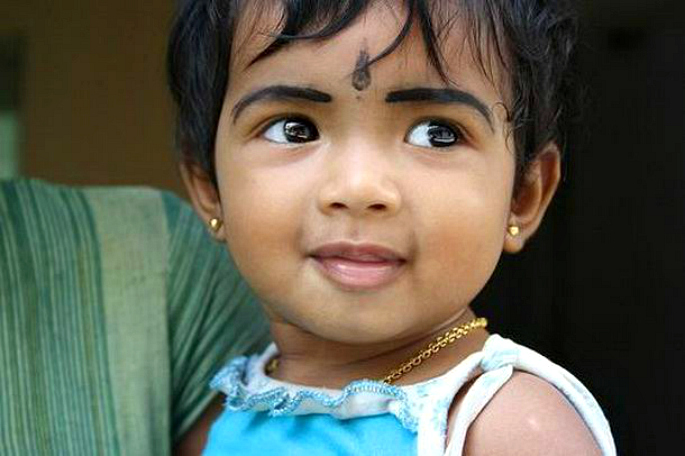"I find that the older generations still have a major issue with not having a boy"
A mother-in-law accompanies her daughter-in-law for her pregnancy scan at a hospital in the UK. The scan reveals it’s a baby girl, and not a son.
At this point, the mother-in-law without saying a word, leaves the hospital, leaving the daughter-in-law crying and distressed on her bed, to be consoled by nursing staff.
When asked by a nurse, what is the problem? She replies:
“I’m having a girl when the family expected me to have a boy. I have let them down.”
The nurse not acquainted with South Asian traditions and expectations was very shocked by the revelation.
Something that in this day and age, is still an issue.
In the UK, although there are many forward thinking and accepting families who have children irrespective of their sex, sadly, the desire to have a boy and son is still a huge stigma affecting British Asian society.
Balwinder, aged 28, a mother of three children says: “After having two girls, we [me and my husband] were happy but I could tell my in-laws were not. The pressure of having a boy was on me. Thankfully, our third child was a boy. If it wasn’t, it is likely we would have tried again.”
Saima, aged 26, says: “As my mother-in-law held my daughter at a party, a lady relative expressed her sadness that it was a girl. I could not curtail my emotions and told her that if my child is healthy why does it matter? She walked off giving me a disgusting look.”
The tradition of preferring boys over girls spans back centuries from South Asian countries.
Especially, with the ideology that a son would be looking after parents when they get older and carrying on the family lineage, whereas, a girl would be seen as a liability in terms of dowry and also married off into her own family.
It is fact that in India, infant foeticide of girl babies is still a major problem. Urban India has higher child sex ratio than rural India according to 1991, 2001 and 2011 Census data, implying higher prevalence of female foeticide in urban India.
Kirat, aged 32, says: “I find that the older generations still have a major issue with not having a boy. The odd thing is that it is the women who are more critical than the men. Aunties and mother-in-laws seem to be the worse.”
So, why is the obsession still present? Do men have an issue with not having a son?
Gaurav, aged 33, says: “We had a son as a second child. I am not going to lie and say it did not feel fantastic, because it did. I just felt my name would be carried on by him.”
Mushtaq, aged 27, says: “We have three daughters and I know my wife sometimes feels she could give me a son. But I am content and could not be happier.”
Traditions do go far as having a celebration if you have a boy with sweets being distributed and even a party, but seldom when you have a girl.
Although, modern thinking and initiatives like Pink Ladoos by Raj Khaira are trying to change attitudes towards gender-bias, there is still a strong preference for boys. Especially, amongst traditional British Asian families.
Then, there are Punjabi celebrations like ‘lohri’ which have been made extra special if celebrating the birth of the first boy in a household, despite the fact that the celebration of lohri can be for any child, boy or girl.
Shahid, aged 35 says: “As a father to two daughters and a son, I can say I do worry more about my daughters than my son, which reflects the traditional thinking and attitude we are brought up with.”
With izzat and shame all highlighted by numerous cases of honour killings, it demonstrates that girls not respecting family wishes for example, by dating outside of their community or getting pregnant without marriage, introduces another dimension to this subject.
Jasbir, aged 30, says:
“When I was younger I never understood why girls were not welcomed compared to boys. But as a mother now of two girls myself, I do see that you have to be extra protective of them compared to my sons. Especially, when it comes to relationships and sex.”
But mothers like Shaneela does not agree with this approach and says: “We should teach our girls to be as strong as boys in all ways. I do not treat my children different due to gender. In fact, I encourage my girls to be independent because we have a strong relationship with trust and understanding.”
Interestingly, the treatment of girls in many Asian households is also reflective of gender-bias. Where girls are often not given the freedom and regard as the boys do.
Meena, aged 20, a sister of three brothers says: “I find that my brothers can get away with anything. But me no way. I have to cook and help domestically, where they do not do a thing. It does affect me as I feel secondary to them.”
Today, roles have also changed. Where traditionally, the boys are suppose to look after parents, daughters care for their parents, if more than the sons. Plus, the increased use of care homes and parents not wishing to be a burden on their children is a growing trend.
Tina, aged 23, says: “My brothers are married and have little time for my parents. Therefore, I cannot ignore looking after them despite being the youngest, I feel totally responsible for their welfare.”
The desire to have a son over a daughter is not one that is going to change dramatically unless attitudes change in the mindsets of newer generations of British Asians. Traditions and culture challenged by modern thinking is always going to be an ongoing battle.
The first step is always acknowledgment of the issue, where in this case, many would feel it is not an issue at all because ‘it has always been like this.’
Mandeep, a student, aged 22, says: “When I have a family, having a boy or girl does not matter. As long as the child is healthy. I do not like the Asian cultural attitude towards girls. We have to stop this as newer generations.”
There is nothing that will change the thinking of elders because they have a foundation of reasons supported by their upbringing and the countries they migrated from.
Change can only happen if there is belief in it. And the issue of gender-bias in the British Asian community can only be changed if we believe we have the regard and respect for girls exactly in the same way we do for boys.

































































